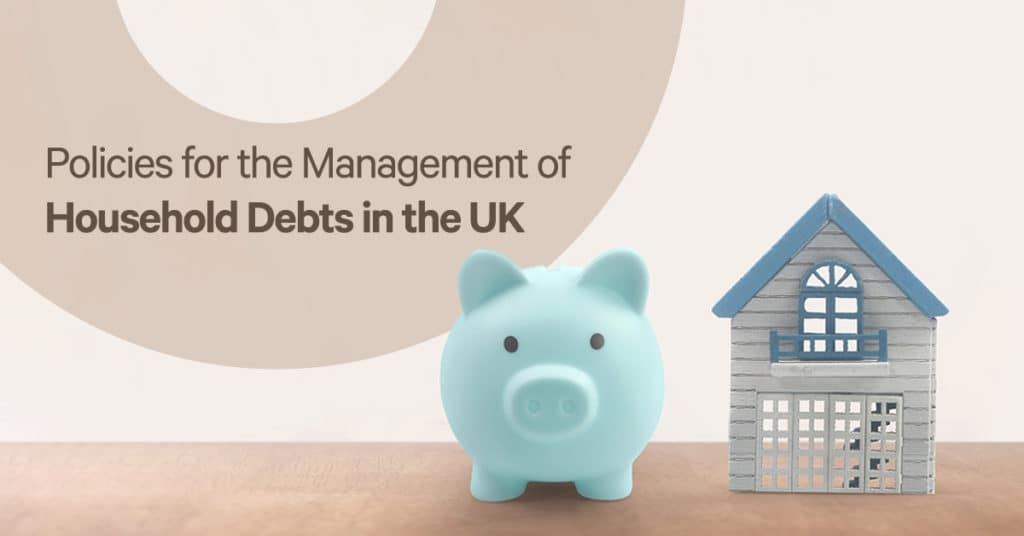It’s been a tough few years for people in the UK. The pandemic meant that income was reduced, and households struggled as a result. Now, thanks to several different reasons, energy prices are increasing and the cost of living is also rising. As such, it is hardly a surprise that it’s becoming harder and harder for people to manage their household debts effectively.
The number of households that have money worries has soared over the past 12 months or so. Research has revealed that nearly half of the population of the UK are finding it difficult to keep up with their household bills and loan repayments. This is up massively from the previous year. There are a number of different ways that you can try to deal with this and these are going to be outlined in more detail below. Here are some main policies you should consider when managing your household debts in the UK.
Recognise (and Better Understand) the Problem
The first thing that you should do is recognise that there is a problem. This is because a lot of households wait too long to seek help, letting their debts continue to mount. There are a number of reasons why people delay acknowledging the issue. Research suggests that a lot of people were hesitant to get in touch with their lenders in order to talk about missed payments because they felt ashamed to do so.
There are persisting misconceptions about how people get into debt and a lot of people think that others will believe the reason they are in debt is because they have poor money management. This isn’t usually the case as normally a life change, sudden drop in income, or external factors such as the increase in energy prices make it harder to stay on top of debt. Other changes include the likes of redundancy, ill health or bereavement, which can get in the way.
Regardless of what the reason is, you should acknowledge it in order to begin to get on top of it. Not only that, but you are going to have a better understanding of your debt as a result which will also help you move forward.
Straighten Up Your Priorities
The first thing you should do is work out the debts that you are going to treat as a priority. The priority debts should be those where the consequence of not making your payments are potentially incredibly serious. These will include the likes of energy bills, council tax, court fines and mortgage payments / rents. Make sure that you are tackling these debts first and are treating them as the most important.
Reach Out to Your Lenders
The first thing that you should do once you have acknowledged there is a problem and have decided which debts you deem to be the most important to pay off is reaching out to your relevant creditors and service providers. The current cost of living crisis has brought with it a shift in the main areas of debt that are proving to be an issue for people and causing the most stress. Energy debts are the biggest cause for concern for people recently; if you reach out, you are in a better position to negotiate a more affordable means by which you can catch up with your late payments.
Your energy provider is under an obligation to help you find a solution. That being said, if you don’t get in touch in an attempt to try and negotiate a better rate and come to an understanding, then you run the risk of having your service cut off.
The same applies to the likes of credit card debts if these are your problem. You could always reach out to your provider and see what arrangement you can come to, as it’s likely they will be happy to let you take a break from repayments or pay a reduced instalment monthly.
If there are issues with your mortgage, lenders tend to offer various options. Some of these include taking a temporary break from your payments, temporarily reducing the amount that you pay every month or adding missed payments to your overall mortgage capital.
Seek Debt Advice
There are organisations who are out there ready to help you pay off your debts or provide advice with what your next steps forward should be, so be sure to reach out to these for more information if you require it. Advisers will be able to carry out a full analysis of what your financial commitments are, both your outgoings and income. They will then be able to lay out what you owe and give you a good indication as to what is happening with your money so that you have a sufficient opportunity to look at it and make tweaks accordingly.
There is no black and white way forward and the way that you decide to progress is going to vary depending on what your situation is. It could be a case of working out what your budget is; alternatively, you could get some tips on how you can effectively manage things. The options are varied and as such, be sure to ask for help so that they can be laid out in front of you and you can progress with more confidence.
Are You Looking for a Reputable Advisor?
If you are looking for sound advice from experts on how you can effectively manage your household debt and move forward in a way which will benefit you, then you should be sure to reach out to Simple Liquidation. Here, our team of experts will sit down with you to learn about your organisation and outline how you should move forward. If you have any more questions on what you can do in order to manage your debt or would like any further information then do not hesitate to get in touch.




